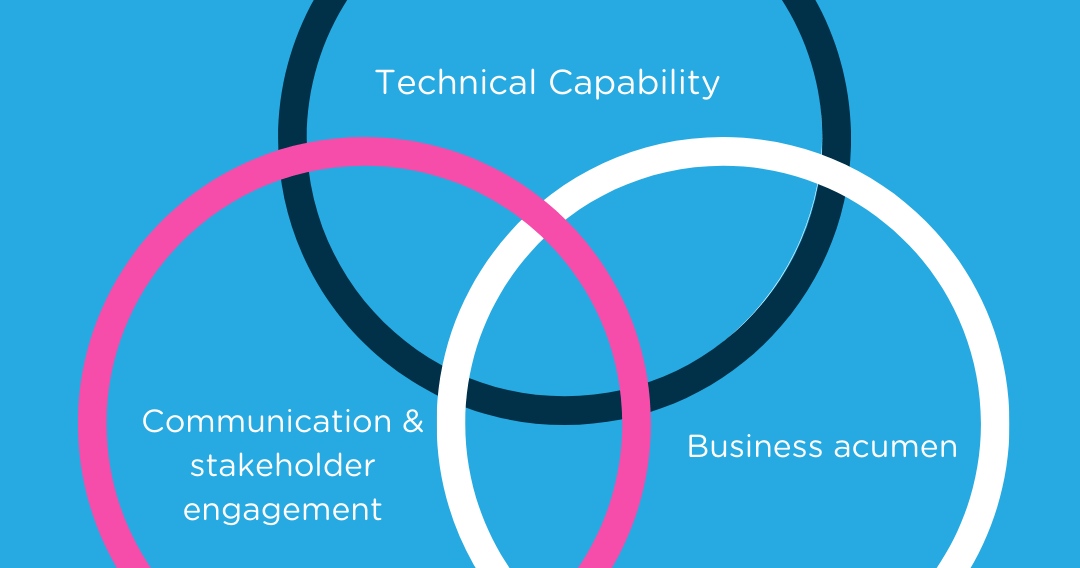The sexiest job of the century – What makes a great data scientist?

Ever since 2012, when a Harvard Business Review article described data scientist as the sexiest jobof the 21stcentury, interest in the field of data science (and career opportunities) has remained high. But the data scientist is one of the more misunderstood roles within organisations (and sometimes even the people who identify as one).
Given the current market for data scientists, I set out to explain what makes a great data scientist (and how to make an impressive career out of it).
In this guide:
● There’s a lot more to data science than being an Excel guru
● 3 key attributes every employer wants in their data scientists
● When data science roles don’t feel sexy
● How data scientists can advance their career
There’s a lot more to data science than being an Excel guru
Data science is an interdisciplinary field that combines statistics, maths, and programming. In some cases, you may even need domain knowledge on top of this. A data scientist’s main responsibility is to leverage data to help other people (or machines) make more informed decisions.
To effectively solve problems with data, you need to be part detective, part innovator (with insatiable curiosity).
A data scientist is a specialist, not to be mistaken for a data analyst or business intelligence analyst.
3 key attributes every employer wants in their data scientists
There are a lot ofskills and traits that can separate a good data scientist from a high demand one. However, these are the 3 key attributes you must have to build a lasting and evolving career in the field:
- Technical capability
You must be able to build models and use data to draw out the required (relevant) insights. Most employers will want to see capability with the likes of Python, R, SQL, or Hadoop for example (note: it’s rare you’ll need to know every single one).
- Business acumen
You must understand the business problem you’re looking to solve, so you can focus on the impact and return on investment for the work that you do.
- Communication and stakeholder engagement
A great data scientist can get real buy-in from stakeholders, and advocates for the impact your work can have. So, being able to tell a story with data, and influence adoption and change in the business.
The sweet spot is being able to nail all 3 attributes, setting you up to become an expert with a skyrocketing career in data science.

When data science roles don’t feel sexy
Having a blend of all 3 attributes will set one up for a dazzling career. But all too often, what I see happening is data scientists being too heavily focused on one attribute at the expense of the others.
When a data scientist focuses only on their technical capability, they’re potentially limiting their progress into leadership roles and may find themselves hitting a ceiling. Because to progress the hierarchy in any career, people must strengthen their business acumen and soft skills. Companies want a Chief Data Officer who can impact business performance by coming up with actionable insights with high returns on investment… and be able to communicate their vision convincingly.
Additionally, I’ve spoken to employers that have hired high scoring PhD data scientists that have been unable to transition from academia into industry because of an obsession with perfect solutions at the expense of any outcomes. A great data scientist is obsessed with solving problems, not creating perfect tools. A decent, 70% effective model can be good enough and any time spent perfecting this to be ‘world’s best’ can be an ineffective use of one’s time with little further reward.
This brings us back to business acumen.
What is the problem you’re looking to solve and what steps will have the greatest ROI?
How data scientists can advance their career
I’ve coached many data scientists to help with career advancement and my advice often comes back to this one thing. The one thing senior leaders in this space tend to have in common.
Time and experience in management consulting roles that provide exposure to multiple business problems and sharpened communication, influencing and business skills.
Working as a consultant can feel hard and will reduce your autonomy and ability to own your projects from start to end. But you could look at it as personal and professional career development because the years spent in this space could set you up brilliantly for a senior level career in data and analytics.
What about data engineers?
I’m also seeing a trend currently where data scientists are spending half their time working as data engineers. Companies have finally realised that any insights derived from their data science teams is only as good as the data they’re working with. Rubbish in, rubbish out.
We’re seeing demand rise for data engineering specialists as companies across Australia aim to clean and convert their raw data into useable information for the expensive data science teams they’ve built.
So, depending on your career motivations, perhaps a shift to data engineering could provide you with the greatest opportunity for growth, development, and impact!
Looking to advance your career in data science, analytics, and engineering?